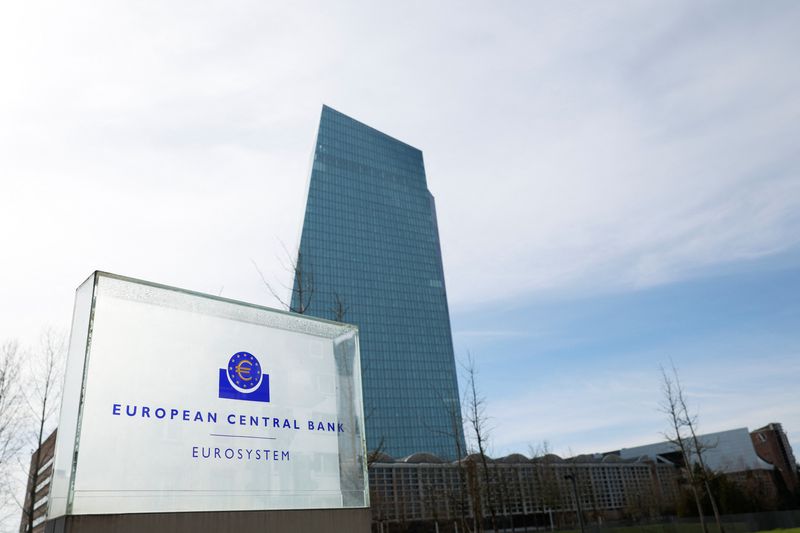LONDON (Reuters) - The European Central Bank must continue its fight to tame inflation "with determination" because wages are rising, fiscal policy is too generous and inflation expectations remain too high, ECB board member Isabel Schnabel said on Friday.
Striking a similar tone, ECB President Christine Lagarde said earlier in the day that the central bank for the 20 countries that share the euro would be "courageous" and do what was needed to beat price pressures.
Their comments came against a backdrop of concerns about fallout on the financial system from an abrupt series of ECB rate hikes and speculation about a pause in tightening by the U.S. Federal Reserve.
Schnabel, a prominent policy hawk, said wage growth had picked up substantially, with unions trying to recoup some of the ground lost in the past two years, while inflation expectations remained "stubbornly high" and government spending "too expansionary".
"This is why it's so important that we show strong determination to bring inflation back to 2%," she told an event in London.
The ECB has raised interest rates by the most on record since last July in a bid to curb inflation, which has been fuelled by higher energy costs, fatter mark-ups by companies and pent-up demand following the COVID-19 pandemic.
The Fed has opened the door a possible pause to its rate hikes amid mixed economic data, a string of bank failures and worries about the U.S. government's debt ceiling.
But Schnabel said the ECB should go on "raising rates to a sufficiently restrictive level and keeping them at that level for as long as necessary".
At the same time it had "the tools to provide liquidity to the euro area financial system, if needed to preserve financial stability", she added.

As examples, Schnabel cited the ECB's massive purchases of corporate and government bonds during the pandemic and its unveiling last year of a scheme that would allow it to help individual countries if they came under undue market pressure.
Investors expect the ECB to raise borrowing costs twice more by the end of the summer - taking the rate it pays on bank deposits to 3.75% - before it starts cutting them early next year.